Energy Minister calls for bold investments to power Africa’s energy future
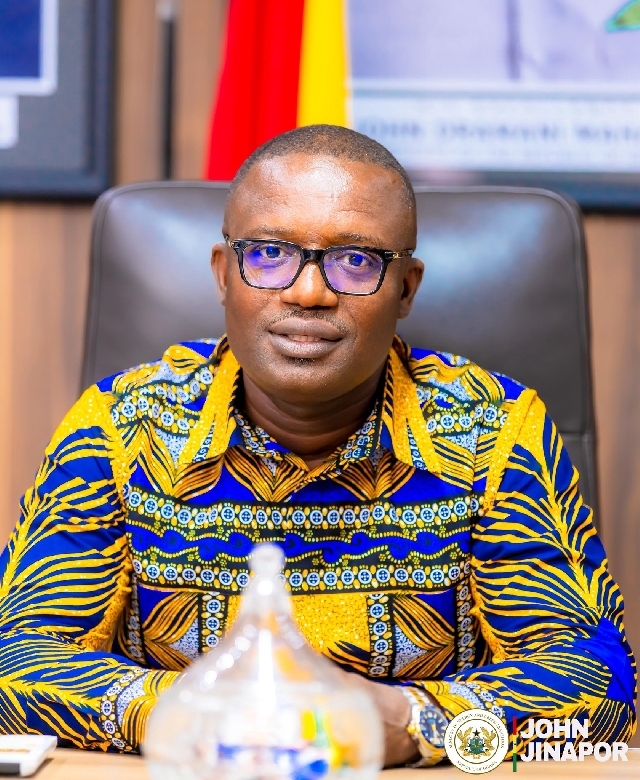 John Abudulai Jinapor
John Abudulai Jinapor
Ghana’s Minister for Energy, Mr. John Abdulai Jinapor, has called on governments, private investors, and development partners to scale up investments in Africa’s energy sector, describing energy access as the “lifeblood of industrialisation, digital transformation, and social development.”
Speaking at the Future of Energy Conference (FEC) 2025 held at the Labadi Beach Hotel in Accra under the theme “Financing Africa’s Energy Future: Unlocking Investments for Energy Access and Economic Transformation”, the Minister said Africa’s economic transformation depends on unlocking sustainable and affordable energy for all.
“No economy can grow without energy. For Africa, where more than 600 million people still live without electricity and over a billion rely on biomass for cooking, the urgency cannot be overstated,” he emphasised.
Mr. Jinapor highlighted Ghana’s efforts to build a sustainable and inclusive energy future, including:
The Energy Transition Framework to decarbonise power and petroleum sectors while scaling up renewables and green hydrogen research.
Establishment of a Renewable Energy and Green Transition Fund to mobilise capital for low-carbon projects.
Expansion of utility-scale solar and mini-grid projects to underserved communities.
Development of the Ghana Nuclear Power Programme as a stable base-load option.
Deepened participation in the West African Power Pool to strengthen regional energy resilience.
Leveraging carbon markets and climate finance to fund clean energy while meeting emission reduction targets.
“These efforts reflect Ghana’s conviction that energy must be the engine of industrialisation, job creation, and competitiveness,” he said.
The Minister stressed that Africa’s energy transition must be both green and just, ensuring affordability and job creation while pursuing clean energy pathways.
He urged the continent to harness opportunities under the African Continental Free Trade Area (AfCFTA) to boost local manufacturing of clean energy technologies and value addition to critical minerals.
Mr. Jinapor called for competitive and sustainable financing mechanisms, such as green bonds, carbon trading, and blended finance.
He urged governments to provide regulatory certainty and guarantees to attract private investors, while development partners must play a greater role in de-risking projects.
Closing his address, the Minister challenged delegates to leave the conference with concrete commitments:“By making our energy systems sustainable, we make our economies resilient.
By making them inclusive, we uplift millions out of poverty.
And by making them competitive, we position Africa as a strong voice in the global energy transition.
Together, we can light up Africa and power the engines of transformation.”
The Future of Energy Conference 2025 brought together policymakers, industry leaders, financiers, academics, and civil society actors to deliberate on strategies for unlocking investments to achieve universal energy access and drive Africa’s economic transformation.
Source: classfmonline.com/Cecil Mensah
Trending News
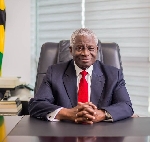
Razak Kojo Opoku urges NPP to resist ‘entrenchment theorists’
07:31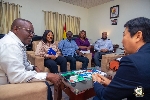
Ambassador-designate Kojo Choi meets NDPC Chairman on strengthening Ghana–South Korea ties
06:09
Over 120,000 students reimbursed under gov't’s ‘No Fees Stress’ programme – Felix Ofosu Kwakye
11:21
GRASAG announces commencement of bursary payments for 2023/2024 academic year
14:54
Ghana's Godwin Asediba wins the 2025 BBC Komla Dumor Award
12:12
Kennedy Agyapong files nomination, urges NPP delegates to back his bid for jobs
07:06
GMet trains media on forecasting and early warning systems
15:38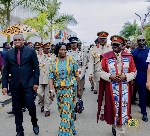
Veep hails Ghana Armed Forces Command and Staff College for excellence in security training
10:55
48-year-old man jailed two years for damaging Obetsebi Lamptey Interchange infrastructure
14:06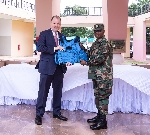
U.S. donates $1m worth of women’s body armour to Ghana Armed Forces
10:09




